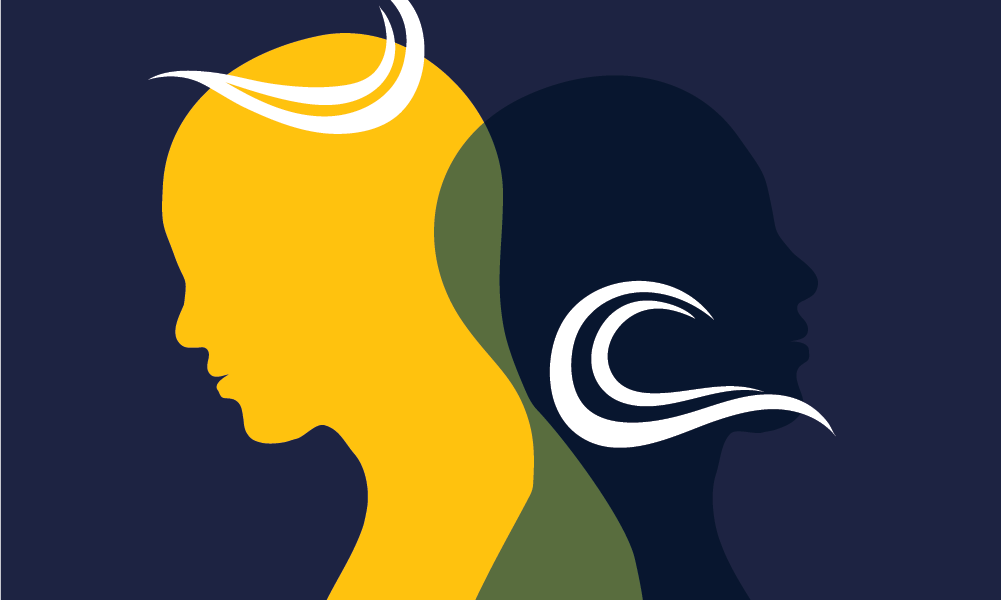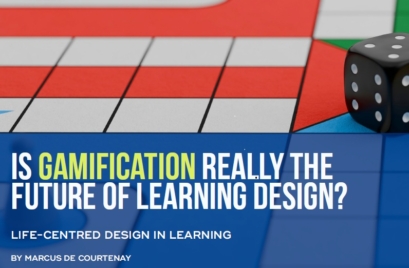
If you’re serious about diversity and inclusion, pay attention to the winds.
Many of us have experienced exclusion at some point in our lives – a time we felt the acute pain of being overlooked, underestimated, or belittled. If we’re fortunate, we’ve also felt moments of belonging when we feel seen, heard, and appreciated. Moments of belonging buoy us. They give us the courage to take risks, be vulnerable, and follow our passions. Belonging creates opportunity. Whether you’re feeling exclusion or belonging is not a matter of chance. We develop our sense of identity through interactions with the world around us, and if our environment is giving us cues that we don’t belong, we can find ourselves fighting some serious headwinds.
Ask any sailor and they will tell you a headwind is not what you need. Headwinds create increased challenge; they make tasks physically more difficult and distract you from the task at hand. They demand high levels of focus, attention, and energy as you struggle against the resistance of the wind. Conversely, tailwinds are effortless. They increase your speed, propelling you forward to your desired destination. Humans are adaptable beings, and soon after we feel the effects of that beautiful wind easing our way, we barely notice the winds at all. We are free to cast our eyes to the horizon and feel the sublime expanse of the ocean.
The Real World of Headwinds and Tailwinds
Transposing this analogy to the real-world, we can understand this blissful state as privilege: that special advantage granted to groups whose gender, sexuality, ethnicity, ability, and social status are perceived positively by broader society. Ask yourself:
- Are you living in this country by choice?
- Have you ever experienced racial, social, ethnic, gender or sexual orientation taunts?
- Have you ever employed someone to do household duties for you?
- Did you study the culture of your ancestors at school?
- Do you see your race, ethnic group, gender or sexual orientation portrayed in degrading roles in films?
- Have you ever got a job because of an association with a friend or family member?
(Calculate your privilege here)
You get the idea?
The Winds of Diversity and Inclusion
If you’re serious about diversity and inclusion, it’s important to pay attention to the very real advantages and disadvantages of an individual’s experience. Why are some people striding ahead, while others feel lucky to have landed a job, working harder, longer, more diligently for the same result?
In her book The Person you Mean to Be: How Good People Fight Bias, Dolly Chugh suggests that we are ‘swimming in a “soup” of bias that enters our brains and is hard to dislodge.’ She argues that even people committed to diversity and inclusion carry bias at an unconscious level. Our biases and blind spots are embedded through osmosis as we grow and develop in particular social, cultural, and political conditions. Because of this, some people face headwinds that hold them back, while others are pushed forward towards success.
It’s common to attribute success to intelligence, even genius. In his book Outliers, Malcom Gladwell debunks this idea, and offers numerous examples of the tailwinds afforded to highly successful individuals. He details the extraordinary conditions that enabled the success of Paul McCartney, Bill Gates, international lawyers, and high-performance athletes, and illustrates how two people with equal and extraordinary intelligence lived devastatingly different lives due to the opportunities they were afforded.
So, what does this mean for you? How can you reduce the headwinds and increase the tailwinds for yourself and others? What needs to shift?
If You’re Experiencing Tailwinds
If you’re experiencing the tailwinds of privilege, you’re able to create a shift. You may feel the headwinds of gender and the tailwinds of a good education, the headwinds of geographic isolation and the tailwinds of financial security. Whatever your privilege, I encourage you to use it to support others encountering headwinds. You can:
Get educated (i.e., Woke)!
The wording may seem trite but getting ‘Woke’ is important. Becoming alert and attuned to the biases embedded in our institutional structures and individual mindsets is a responsibility we all hold.
Acknowledge your privilege
Acknowledge and appreciate the benefits you’ve received: your health, education, emotional security, voice, or visibility, whatever is increasing your tailwinds. Recognise that career success is not solely a matter of individual effort but the result of collective influences.
Show up with humility
Privilege tends to be a triggering word. It can send us into threat and cause us to justify our position: how hard we’ve worked, and how difficult it’s been. Catch those thoughts and apply some humility. Try asking someone experiencing headwinds about their experience – get curious and listen.
Adopt a growth mindset
Dolly Chugh points out that everyone wants to be seen as a ‘good person.’ This can lead us to defend any errors we make or privilege we receive e.g., I’m not racist! I’m not to blame for the system! This can further alienate or marginalise those experiencing headwinds. Try moving from a fixed to a growth mindset.
Fixed mindset – I’m not sexist
Growth mindset – I said an insensitive thing; next time I’ll try harder to consider their perspective.
Speak up
Champion diversity and inclusion. Demand greater representation of minority groups. Call out structures, processes and language that marginalise individuals and groups. Prepare some responses for when sexist, racist or elitist comments are made e.g.,
- “Perhaps it wasn’t your intention, but your comment made me feel dismissed”
- “What information are you basing that on?”
- “That’s not my experience”
If You’re Experiencing Headwinds
Find your flock
Jungian psychologist Clarissa Pinkola Estes in her book Women Who Run with Wolves, suggests finding your flock. She offers the analogy of a duckling who was ridiculed by a cat and hen for expressing her desire to be under the water. The lesson here is to stop wasting your energy on people who aren’t open to your way of being. Build your sense of belonging with people who show real care; it will give you greater resilience and courage.
Build your social capital
Social capital is your network of relationships. Networks are important sources of information and assistance. They include family, friends, social groups, work colleagues and project groups. They are also people willing to advocate on your behalf, show you the ropes, and offer opportunities for you to practice your developing knowledge and skills.
Know your boundaries
Author and researcher Brene Brown encourages us to get clear on our boundaries. She defines boundaries as ‘what’s ok and what’s not ok’ e.g., It’s ok that you’re angry; it’s not ok for you to yell at me. Setting boundaries is key to self-respect and self-care. If we allow people to step over our boundaries, we can become resentful. Brown asks the B.I.G question “What boundaries need to be in place for me to stay in my integrity and make the most generous assumptions about you.”
Transcend into purpose
Our purpose is our reason for doing what we do. It gives meaning to our work and enables us to align our actions with our values. Get clear on your personal purpose. It will give you a sense of resolve and determination that can buffer you against the headwinds, allowing you to stay calm and focused amid the noise.
Show self-compassion
In her New Yorker article (2021) Merve Emre questions popular psychology’s emphasis on the individual and the push to ‘show up’ aware, self-regulating, and empathetic. While these are admiral qualities, Emre asks – whose purpose are they serving? Until disadvantage is addressed at a structural level, there’s a limit to how far showing up as your best self will take you. If you’re having trouble making headway, avoid judging or criticising yourself; show yourself the care and compassion you’d extend to a close friend.
Your identity and how it is conceptualised by society dictates the frequency, force, and direction of your winds. Whether you are experiencing headwinds or tailwinds there are actions you can take to create a more equitable society, to increase everyone’s sense of belonging, and reduce exclusionary systems and behaviours.
So, I invite you to pay attention to the winds!
Need More Help?
Keen to find out more about headwinds, tailwinds, and the role they play in diversity, equity and inclusion? Performance Frontiers are experts in helping guide leaders to cultivate a range of creative and strategic practices within their teams to help create a more balanced space. Speak to Natasha about how we can partner with you and/or your organisation today.
References
- Exploring your Privilege
- Dolly Chugh: The Person you Mean to Be: How Good People Fight Bias
- Malcom Gladwell: Outliers
- Harvard Business Review: How to respond to an offensive comment at work:
- Clarissa Pinkola Estes: Women Who Run with Wolves
- Brene Brown: Dare to Lead
- Merve Emre: New Yorker The Repressive Politics of Emotional Intelligence https://www.newyorker.com/magazine/2021/04/19/the-repressive-politics-of-emotional-intelligence
- First Person Plural: Navigating Bias in Corporate America https://www.keystepmedia.com/first-person-plural/
While every effort has been made to provide valuable, useful information in this publication, this organisation and any related suppliers or associated companies accept no responsibility or any form of liability from reliance upon or use of its contents. Any suggestions should be considered carefully within your own particular circumstances, as they are intended as general information only.







